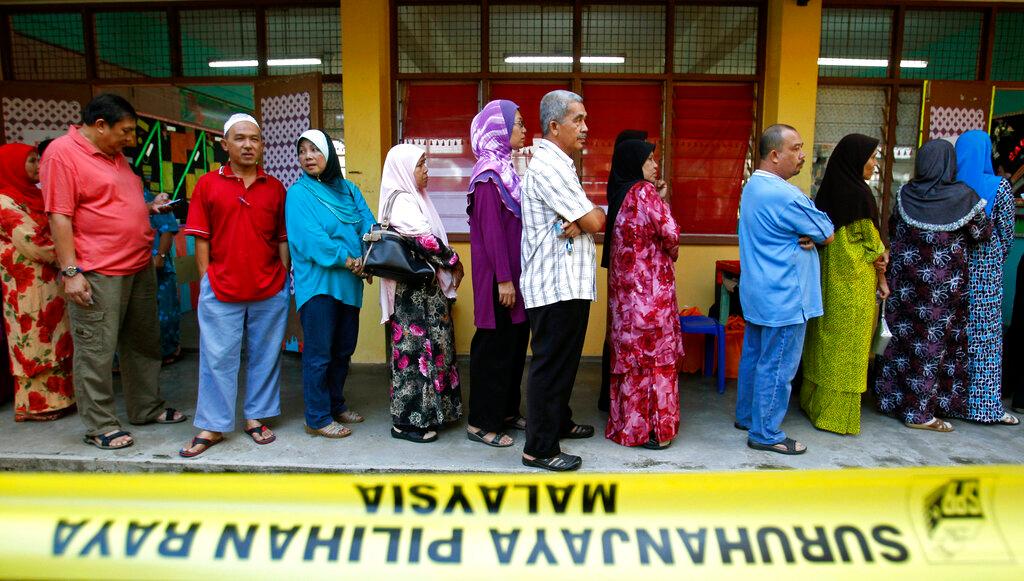Think out of the box, EC urged in planning pandemic polls for Sarawak
While the state election has been delayed by a six-month emergency declaration, preparations must still be made for the possibility of pandemic polls.
An academic has urged authorities to think out of the box in preparing for the possibility of holding pandemic polls in Sarawak, especially given the emergence of the highly contagious Delta variant which has been blamed for a spike in cases across many countries, including Malaysia.
While the much anticipated state election has been delayed once again by a six-month proclamation of emergency in Sarawak, preparations which began last year have nonetheless continued, due in part to the unique challenges of holding polls in the East Malaysian state.
Given its huge size and varied topography, a pandemic-season election in Sarawak would require a boost in finances, human capital and the planning of logistics.
“If an election takes place, we need to ensure the safety of everyone, with or without the Delta variant,” Election Commission (EC) secretary Ikmalrudin Ishak told MalaysiaNow.
“The cost of conducting that election is expected to increase.”
This is largely due to the need for more polling centres and streams, more election officials, and the purchase of whatever equipment is needed to address the virus outbreak as recommended by the health ministry.
To pull off an operation of such magnitude will not be easy, but Ikmalrudin said the EC had been in ready mode ever since the Sabah state election in September last year, which was followed by a new wave of Covid-19 infections.
“We have been implementing more improved initiatives,” he said. These include the setting up of a polling line exclusively for senior citizens and people with disabilities.
“Increasing the number of polling streams can reduce congestion and cut waiting time,” he said.
“Shuttle facilities and wheelchairs will also be provided to ensure that voting can be carried out in an orderly and systematic manner.”
Online, split polling
But Dr Helmy Hazmi of Universiti Malaysia Sarawak questioned the extent to which the provision of more polling streams would reduce congestion in and of itself.
Speaking to MalaysiaNow, he said it might only contribute to another surge in infections.
Instead, he suggested that polling be split up and held on multiple days.
“This could take a little longer than usual,” he acknowledged. “But people’s movements can be somewhat regulated this way. It’s also possible that the number of volunteers and workers from the EC will be reduced.
“The commission, for example, might enable senior citizens to vote on the first day followed by the young people on the second day. On the third day, those with special requirements such as people who are wheelchair-bound, could vote.
“Data from prior elections could be used to determine the number of days.”
He also suggested that voting take place in urban areas first, followed by rural locations.
Helmy said much would depend on the EC and how innovative it was willing to be.
For example, he said, online voting could be held in urban areas with steady internet access.
“That would be a novel approach and advantageous for Sarawakians living in West Malaysia or elsewhere in the world. They would not have to return home to vote,” he said, adding that postal voting also remained an option.
But if physical voting is required, he said, a strategy should be devised to prevent crowds from becoming unmanageable.
Campaign complacency
Likewise, Helmy said, strict rules should apply to political parties during the campaign period.
He said it would be disastrous for public health if individuals are allowed to travel into the state to campaign.
“Do we allow campaigners from West Malaysia to come to the state as well? Border management is still crucial, even though the majority of our people have been vaccinated.”
If people decide to enter the state for campaign purposes, he said, they should be quarantined for two weeks before being allowed in.
“If we consider the overworked healthcare personnel at hospitals, this is not that severe,” he said.
“Last year, this was one of the issues that afflicted Sabah.”
Prior to the Sabah election, which was held on Sept 26 last year, daily cases had hovered at two- to three-digit numbers. Caseloads began spiking after the election, eventually reaching four-digit figures.
The election was estimated to have contributed 70% of cases in the state and at least 64% in the rest of the country.
When asked about the progress of laying down election procedures, Ikmalrudin said the EC is working to finalise the SOPs.
“For the sake of democracy, we will carry out our duty to hold elections,” he said.
“We are working closely with the health ministry, the National Security Council, the Sarawak state disaster management committee and other related agencies to develop precautionary measures to prevent the spread of Covid-19 in Sarawak during the election.
“These will be announced after the SOPs have been gazetted.”
Ikmalrudin said SOP compliance would be of the utmost importance during the election process.
“It is absolutely crucial for all parties to remain vigilant and to comply with the SOPs to prevent the spread of Covid-19.”
Subscribe to our newsletter
To be updated with all the latest news and analyses daily.
